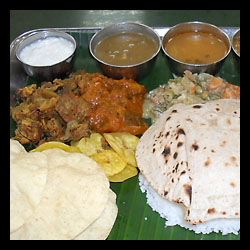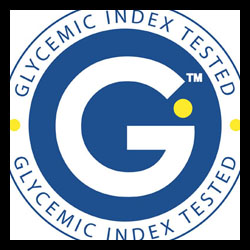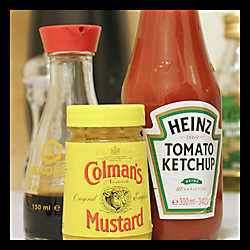 For many of us, the question of “how to lose weight for vegetarians” may sound unusual because we would never expect a vegetarian diet to get people fat. There’s no high calorie fried chicken, no cholesterol clogging greasy bacon and no fatty meat in a vegetarian diet. So how can a vegetarian get fat? To be honest, that was what I thought too. Until one day, I saw what I believed is a typical Indian vegetarian diet at lunchtime.
For many of us, the question of “how to lose weight for vegetarians” may sound unusual because we would never expect a vegetarian diet to get people fat. There’s no high calorie fried chicken, no cholesterol clogging greasy bacon and no fatty meat in a vegetarian diet. So how can a vegetarian get fat? To be honest, that was what I thought too. Until one day, I saw what I believed is a typical Indian vegetarian diet at lunchtime.
The gentleman sat next to me. On his lunch tray are the following dishes:
- One chapatti (Indian flatbread)
- One serving of potatoes with curry
- One serving of white rice
- 2 servings assorted vegetables with gravy
- 2 Papadums (Indian crackers)
- 4 small servings of different accompanying gravy
One thing that hit me was how carbohydrate dense the lunch was! Not only was it packed with carbohydrates, it was packed with high glycemic carbohydrates – the type that will send you straight to snooze Ville shortly after lunch.
Oh, by the way, I haven’t even added the can of Coke he was drinking.
Out of curiosity, I calculated an approximate energy composition of his lunch (excluding Coke) and it was at least 900 calories and 160gm of carbohydrates. (Source: Health promotion board website).
Now, that’s not a lot. Not for someone who works out regularly and needs the calories to replenish his energy stores and to repair and grow his muscles. But for a desk jockey, a continued diet like such will grow nothing but your belly and butt.
If you are vegetarian and are struggling to find the quickest way to lose weight, below are 3 useful tips which can help you to get slim. If nothing else, it will prevent your belly from expanding any further.
 |
Vegetarian Weight Loss Tip #1: Know the GI of your food All foods have a glycemic index. The glycemic index, to put it simply, is a measure of the blood sugar response in your body in relation to the food you eat. The higher the glycemic index, the greater the response of blood sugar in your body. When we consume food with a high glycemic index, it sends a rush of sugar into our bodies. Because we cannot have excessive sugar floating in our bodies, insulin is produced to store away the excessive sugar. This excessive sugar often ends up getting stored in our belly.
But when you consume low glycemic food, it does not trigger a high blood sugar response and as a result, there won’t be a need for insulin to come in a store the excessive blood sugar. Remember, an excess of anything, whether calories or carbohydrates, all end up getting stored as fat. So as a general rule, avoid all white carbohydrates such as white rice, white potatoes, white bread and table sugar. For more information on the relationship between blood sugar and how you get fat, watch my “4 Deadly Foods to Avoid” Video. If you are looking for the fastest way to lose weight, this is it. Follow your diet based on the glycemic index and you’ll never need to count calories or carbohydrates again. |
|||||||
 |
Vegetarian Weight Loss Tip #2: Have protein in every meal Getting sufficient protein is one of the biggest challenges of vegetarians, especially vegans. If your current weight loss plan is anything decent (such as my 10 Minute Corporate Fat Loss Plan) there will be an exercise component and an emphasis to build muscle to aid fat loss. In order to build muscles, you need to ensure that you consume sufficient protein in every meal. For vegetarians, make sure you include eggs and milk into your diet. Eggs are one of the cleanest and cheapest sources of protein you can find. One large hardboiled egg contains about 6-7 grams of good quality protein. Plant sources also contain protein but unlike the animal sources, they are mostly incomplete protein. Incomplete protein means they do not have all of the eight essential amino acids. But don’t fret. You can also get complete protein from plant sources by pairing up complementary plant proteins. You can get complete protein by pairing up the following sources:
Grains + Legumes (E.g.: Barley with green beans) |
|||||||
 |
Vegetarian Weight Loss Tip #3: Little things make big differences Something seemingly insignificant like a dipping sauce, gravy or condiment can make a big difference in your daily calorie intake. A completely clean vegetarian meal can be easily made unhealthy by the introduction of the sauces and condiments. A vegetarian diet is typically low in calories. So watch out for those sauces, gravy and condiments which can add a significant amount of calories, sodium and sugar into your diet. Don’t believe it? Take a look at the ingredients in your ketchup bottle or mayonnaise bottle. There is an unexpectedly big amount of sodium, sugar and high fructose corn syrup.
Weight loss for vegetarians doesn’t have to be difficult. Although the food you eat may differ from a non-vegetarian but the principles of weight loss remains the same. |
I hope the tips above have helped you to gain a deeper understanding of how you can have easy loss weight for vegetarians.
If you are looking for the quickest way to lose weight in just 10 minutes a day, this 5 week fat loss program will guarantee inches off your waist. You will see results in just 3 days. Find out more about the 10 Minute Corporate Fat Loss Plan.




 Daniel Ho is a Certified Sports Nutritionist (USSA), Certified Personal Trainer (ACE) and fitness enthusiast with over 10 years of training experience. At the time of writing, Daniel is working as a Product Manager for a large Multi-National Corporation. Having worked in the
corporate environment for over seven years with a
typical nine to five (sometimes longer) schedule, he
understands the struggle that most people have in
order to stay fit and healthy...
Daniel Ho is a Certified Sports Nutritionist (USSA), Certified Personal Trainer (ACE) and fitness enthusiast with over 10 years of training experience. At the time of writing, Daniel is working as a Product Manager for a large Multi-National Corporation. Having worked in the
corporate environment for over seven years with a
typical nine to five (sometimes longer) schedule, he
understands the struggle that most people have in
order to stay fit and healthy...